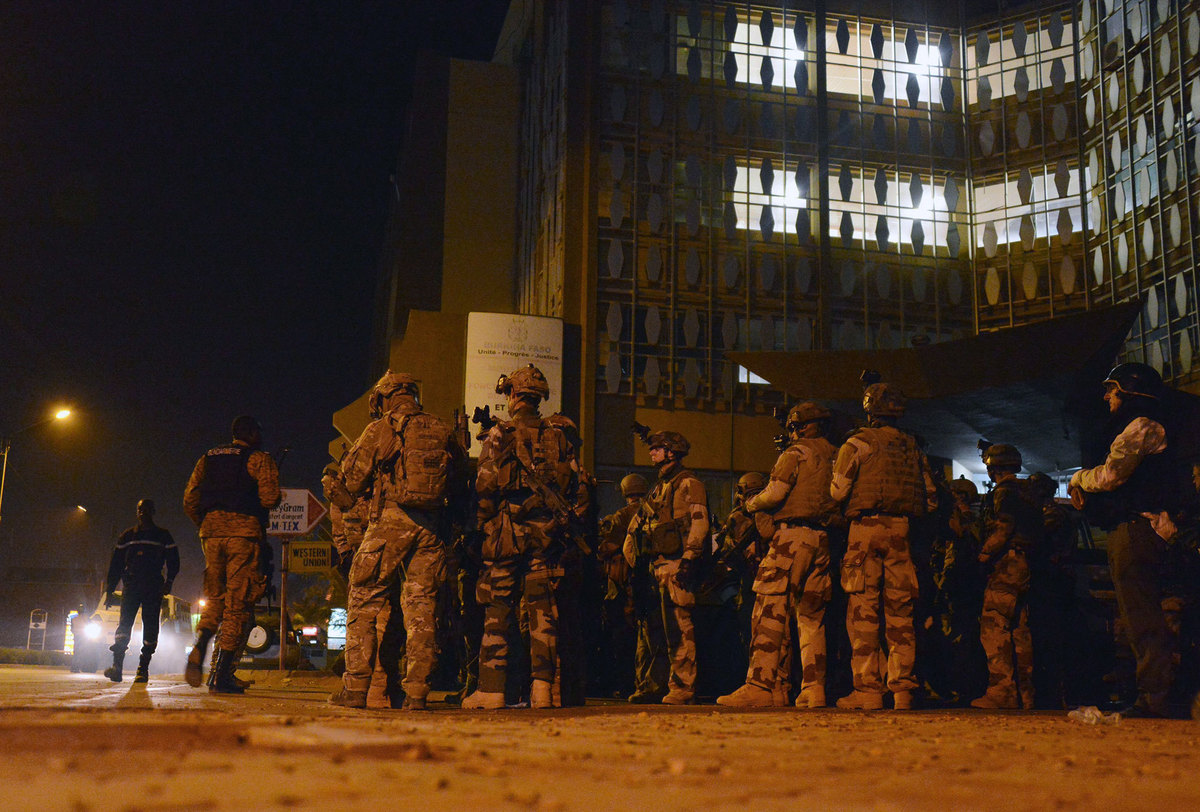- Gunmen Kill 40 People in Mosques in New Zealand
Forty people have been killed and more than 20 seriously wounded in shootings at two mosques in Christchurch.
New Zealand’s Prime Minister Jacinda Ardern described the incidents as a terrorist attack, and one of the country’s “darkest days”.
Three men and one woman are in custody, police commissioner Mike Bush said, but warned more suspects may be at large.
Australia’s Prime Minister Scott Morrison said one of those arrested was an Australian citizen.
He described the suspected attacker as an “extremist right-wing violent terrorist”.
Witnesses told local media they ran for their lives and saw people bleeding on the ground outside the Al Noor mosque.
A second mosque in the suburb of Linwood has been evacuated, and Police Commissioner Mike Bush said “multiple fatalities” were recorded at two locations. As yet, far fewer details have emerged from the second site.
They said they had responded to “a number of IEDs (explosive devices) attached to vehicles, that we also stopped”.
Authorities have advised all mosques in the city to shut down until further notice, saying this was an unprecedented act of violence.
Armed police have also been seen at Papanui High School in Christchurch, which has been cordoned off.
It is not yet known how many shooters there were, but one gunman is an Australian who is believed to have written a manifesto outlining his intentions. In it, he espouses far right and anti-immigrant ideology.
Footage taken by one shooter has emerged, which he appears to have live-streamed as he shot victims in a mosque. Police called on the public not to share the “extremely distressing” material online.
Facebook said it had removed the shooter’s Facebook and Instagram accounts as well as any support voiced for that crime.
The sequence of events remains unclear and has mostly come via eyewitness reports to local media.
The first report of an attack came from the Al Noor mosque, located in central Christchurch along Deans Avenue, facing Hagley Park. Witnesses there reported seeing people bleeding on the ground outside the building.
One unnamed survivor told TV New Zealand he saw a gunman shoot a man directly in the chest.
The attacker reportedly targeted the men’s prayer room in the mosque, then moved to the women’s room.
“What I did was basically just waiting and praying, God please, let this guy run out of bullets,” the witness said.
“He came to this side, he shot this side, he went to another room and went to the ladies’ section and shot them. I just heard one of the ladies has died.”
A Palestinian man, who did not wish to be named, told AFP news agency he saw a man shot in the head, and heard rapid gunfire.
“I heard three quick shots, then after about 10 seconds it started again – it must have been an automatic, no one could pull a trigger that quick.
“Then people started running out. Some were covered in blood.”
A second mosque in the suburb of Linwood has also been evacuated, and the police commissioner said “multiple fatalities” were recorded at two locations. There are far fewer details emerging from there, however.
Multiple casualties have been brought to Christchurch Hospital, where there is a heavy police presence.
Police earlier cleared Cathedral Square, where thousands of children had been holding a rally for action on climate change.
Police Commissioner Mike Bush said: “Police are responding with its full capability to manage the situation, but the risk environment remains extremely high.
“Police recommend that residents across Christchurch remain off the streets and indoors until further notice.”
A lockdown on all schools in Christchurch has now been lifted, and parents are being told they can collect their children.
Australia’s Prime Minister Scott Morrison tweeted: “I’m horrified by the reports I’m following of the serious shooting in Christchurch, New Zealand. The situation is still unfolding but our thoughts and prayers are with our Kiwi cousins.” (BBC)




 Naira4 weeks ago
Naira4 weeks ago


 Naira3 weeks ago
Naira3 weeks ago


 News4 weeks ago
News4 weeks ago
 Travel4 weeks ago
Travel4 weeks ago




 Naira4 weeks ago
Naira4 weeks ago


 Jobs3 weeks ago
Jobs3 weeks ago
 Naira3 weeks ago
Naira3 weeks ago


 Travel3 weeks ago
Travel3 weeks ago



















